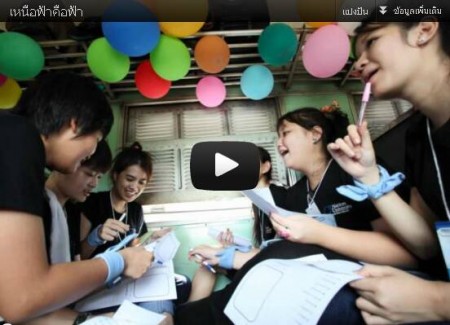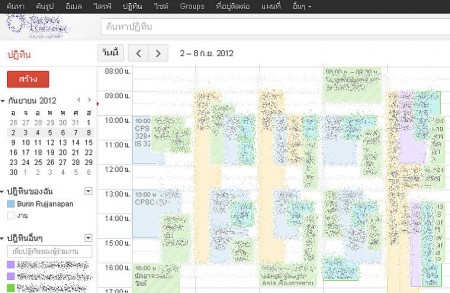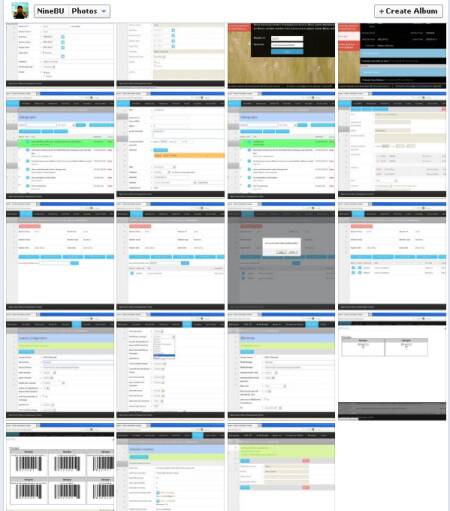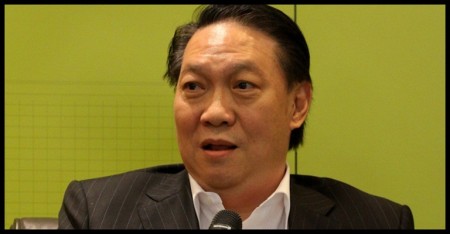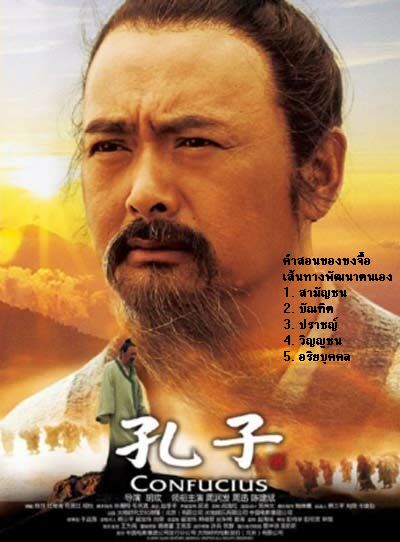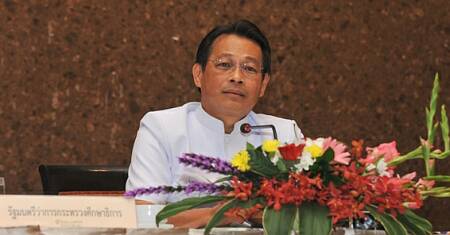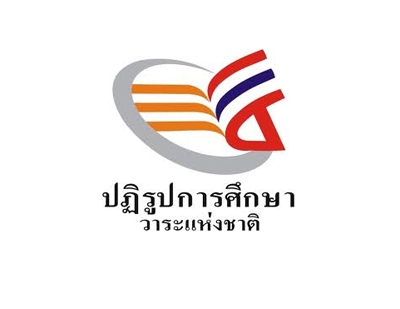 วาระแห่งชาติ เล่มที่ 1 การปฏิรูปการศึกษา : วาระแห่งชาติ จากพระราชบัญญัติการศึกษาแห่งชาติ พ.ศ. 2542 สู่การปฏิบัติ ยุทธศาสตร์ที่จะพาประเทศพ้นวิกฤต .. สำนักงานคณะกรรมการการศึกษาแห่งชาติ [974-241-263-4]
วาระแห่งชาติ เล่มที่ 1 การปฏิรูปการศึกษา : วาระแห่งชาติ จากพระราชบัญญัติการศึกษาแห่งชาติ พ.ศ. 2542 สู่การปฏิบัติ ยุทธศาสตร์ที่จะพาประเทศพ้นวิกฤต .. สำนักงานคณะกรรมการการศึกษาแห่งชาติ [974-241-263-4]
อันดับการศึกษาของไทยในเวทีโลกยังไม่สุดท้ายซะทีเดียว .. 37 จาก 40
พระราชบัญญัติ การศึกษาแห่งชาติ พ.ศ. ๒๕๔๒ แก้ไขเพิ่มเติม
http://www.sesa10.go.th/sesa10/data/mar55/2.pdf
http://www.scribd.com/doc/115003666
29 พ.ย.55 ฟินแลนด์และเกาหลีใต้ได้รับการจัดอันดับให้เป็นประเทศที่มีระบบการศึกษาที่ดีที่สุดในโลก เป็นอันดับหนึ่งและสองตามลำดับ ในกลุ่มประเทศพัฒนาแล้ว จากการจัดอันดับโดยบริษัทด้านการศึกษาชื่อดังจากสหรัฐฯ “เพียร์สัน”
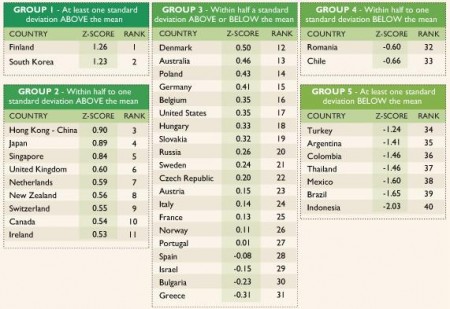
thailand 37 from 40 การจัดอันดับ ใช้การรวบรวมข้อมูลจากผลการสอบในระดับนานาชาติและข้อมูล เช่น อัตราการศึกษาในระหว่างปี 2006 และ 2010 เซอร์ไมเคิล บาร์เบอร์ หัวหน้าฝ่ายที่ปรึกษาด้านการศึกษาของเพียร์สัน เปิดเผยว่า ประเทศที่ติดในอันดับที่ดีส่วนใหญ่มักจะให้ความสำคัญกับ ครูผู้สอน รวมถึงการมีวัฒนธรรมด้านการศึกษาที่ดี
ตามหลังฟินแลนด์และเกาหลีใต้ ประเทศที่มีระบบการศึกษาที่ดีที่สุดในอันดับที่ 3-5 นั้น ล้วนมาจากเอเชียทั้งสิ้น ได้แก่ ฮ่องกง (จีน) อันดับ 3, ญี่ปุ่น อันดับ 4 และ สิงคโปร์ ในอันดับ 5 ขณะที่อันดับ 6 ตกเป็นของอังกฤษ ตามมาด้วยเนเธอร์แลนด์ ในอันดับที่ 7 และ นิวซีแลนด์ สวิตเซอร์แลนด์ และแคนาดาในอันดับที่ 8-10 ตามลำดับ ขณะที่ประเทศมหาอำนาจอื่น ๆ อย่างสหรัฐฯ ฝรั่งเศส และเยอรมนี อยู่ในอันดับรองลงไป
โดยในการจัดอันดับที่มีจำนวน 40 ประเทศนั้น อินโดนีเซีย บราซิล และเม็กซิโกมีคะแนนต่ำสุด ในอันดับที่ 40, 39 และ 38 ตามลำดับ ขณะที่ไทยอยู่ในอันดับที่ 37
รายงานระบุว่า ความสำเร็จของประเทศในเอเชีย ซึ่งอาจจะเป็นผลมาจากประเทศดังกล่าวให้ความสำคัญกับการศึกษามากเป็นพิเศษ อีกทั้งผู้ปกครองต่างก็พร้อมจะทุ่มเทให้บุตรหลานของตนได้รับการศึกษาที่ดีและมีคุณภาพ เพื่อความเจริญก้าวหน้าในชีวิต
แต่สิ่งที่สำคัญนอกจากการทุ่มเทให้บุตรหลานได้รับการศึกษาที่ดีนั้น สะท้อนให้เห็นค่านิยมที่ให้คุณค่าต่อการศึกษาในระดับสูง รวมถึงการคาดหวังของผู้ปกครอง ซึ่งยังคงเป็นปัจจัยสำคัญแม้ครอบครัวจะย้ายไปยังประเทศอื่น
ขณะที่อันดับหนึ่งและสองอย่างฟินแลนด์และเกาหลีใต้ ค่อนข้างมีความแตกต่างกันหลายประการ แต่มีปัจจัยร่วมกัน คือ ความเชื่อทางสังคมที่ให้ความสำคัญต่อการศึกษาและจุดประสงค์ด้านศีลธรรมที่แอบแฝงอยู่
รายงานดังกล่าวยัง เน้นเรื่อง คุณภาพของครูผู้สอน และความจำเป็นต่อการจ้างครูที่ดีที่สุด ซึ่งอาจรวมถึงการได้รับความเคารพในทางวิชาชีพและสถานะทางสังคม เช่นเดียวกับรายได้ที่ได้รับ อย่างไรก็ดี การจัดอันดับไม่ได้แสดงจุดเชื่อมโยงที่แน่ชัดระหว่างรายได้สูงและการสอนที่มีคุณภาพ รายงานระบุว่า ระบบการศึกษาที่สูงและต่ำยังมีผลลัพธ์ทางเศรษฐกิจโดยตรง โดยเฉพาะอย่างยิ่งในประเทศที่พึ่งพาแรงงานที่ใช้ทักษะ
ที่มา: ข่าวสดออนไลน์
http://prachatai.com/journal/2012/11/43934
http://thelearningcurve.pearson.com/content/download/bankname/components/filename/FINAL%20LearningCurve_Final.pdfhttp://www.breakingnewsenglish.com/1211/121129-education.html
5 บทเรียนสำหรับผู้กำหนดนโยบาย
(Five lessons for education policymakers)1. การพัฒนาการศึกษาไม่ใช่ฝันลม ๆ แล้ง ๆ แล้วจะสำเร็จ ต้องใช้เงินลงทุน เชื่อมโยง และต่อเนื่อง จึงจะได้ผล
2. ถ้าได้ครูดี ผลคือนักเรียนดี จึงต้องรักษาครู และพัฒนาให้เป็นครูมืออาชีพ ไม่ใช่มุ่งเพิ่มเทคนิค หรือเพิ่มเครื่องมือ
3. มีวัฒนธรรมเชิงลบบางเรื่องที่ต้องเปลี่ยน แล้วสนับสนุนวัฒนธรรมเชิงบวกที่มีผลต่อการศึกษา
4. พ่อแม่ต้องเข้าใจและร่วมกันพัฒนาการศึกษาของเด็ก
5. การศึกษาคือการเติมเต็มทักษะในปัจจุบัน เพื่อนำไปใช้ในอนาคตhttp://thelearningcurve.pearson.com/the-report/executive-summary
การสัมมนาเชิงวิชาการผู้ปฏิบัติงานด้าน ICT ของ ศธ.
โดยมีผู้เข้าร่วมกว่า ๒๐๐ คน เมื่อวันที่ ๓ กันยายน ๒๕๕๓ ณ โรงแรมแมนดาริน กรุงเทพฯนายชินวรณ์ บุณยเกียรติ รัฐมนตรีว่าการกระทรวงศึกษาธิการ
รมว.ศธ.กล่าวว่า ศธ.มีนโยบายปฏิรูปการศึกษาในทศวรรษที่สอง โดยเฉพาะการยกระดับเทคโนโลยีสารสนเทศทางการศึกษาเป็นนโยบายหลักในการขับเคลื่อนคุณภาพทางการศึกษา และสร้างสังคมแห่งการเรียนรู้ นอกจากนี้ รมว.ศธ.ยังมีนโยบายด้านการศึกษา ๘ ข้อ ซึ่งมีจุดเน้น ๓ ด้าน ดังนี้
1. การปฏิรูปการศึกษาในทศวรรษที่สอง ซึ่งการดำเนินงาน ๖ เดือนที่ผ่านมา ศธ.ได้แต่งตั้งคณะกรรมการนโยบายปฏิรูปการศึกษา โดยมีนายกรัฐมนตรีเป็นประธาน มีการกำหนดเป้าหมาย ตัวชี้วัด และวางระบบการปฏิรูปการศึกษาในทศวรรษที่สองอย่างชัดเจน และแต่งตั้งคณะกรรมการขับเคลื่อนการปฏิรูปการศึกษาทศวรรษที่สอง ซึ่งได้นำเป้าหมาย ตัวชี้วัด มาดำเนินการ ขณะนี้มี Road Map แผนปฏิบัติการ และผู้รับผิดชอบการขับเคลื่อนการปฏิรูปการศึกษาอย่างเป็นรูปธรรมแล้ว
2. ครู ซึ่งเป็นกุญแจสำคัญในการปฏิรูปการศึกษาให้ประสบความสำเร็จ ศธ.ได้วางแผนพัฒนาครูทั้งระบบ โดยเริ่มจากการผลิตครู ซึ่ง กนป.ได้อนุมัติให้ผลิตครูพันธุ์ใหม่ ๓๐,๐๐๐ อัตรา ได้ตั้งเป้าหมายไว้ในอีก ๑๐ ปีข้างหน้า ศธ.จะผลิตครูพันธุ์ใหม่ให้ได้ ๒๐๐,๐๐๐ คน การพัฒนาครูทั้งระบบ ซึ่ง สพฐ.ได้ร่วมมือกับจุฬาลงกรณ์มหาวิทยาลัย และมหาวิทยาลัยศรีนครินทรวิโรฒ ทำการทดสอบสมรรถนะครู อบรมหลักสูตรของครู และของผู้บริหาร เพื่อนำไปสู่การสร้างครูต้นแบบ Master Teacher และให้แรงจูงใจ ในการศึกษาต่อในระดับปริญญาโท สำหรับการใช้ครูนั้น ศธ. ได้คืนครูให้กับโรงเรียน โดยจ้างพนักงานธุรการและตำแหน่งอื่น เช่น บรรณารักษ์ มาแทนครูเพิ่มขึ้น เพื่อให้ครูได้กลับสู่ห้องเรียน และ ศธ.ยังได้เพิ่มขวัญและกำลังใจครูด้วยการพัฒนาค่าตอบแทนครู ยกมาตรฐานวิชาชีพครู และแก้ไขหนี้สินครูทั้งระบบด้วย
3. ยกระดับการใช้ ICT เพื่อการศึกษาเป็นวาระแห่งชาติตามเป้าหมายการปฏิรูปการศึกษา คือ เพิ่มสัดส่วนของผู้ใช้อินเทอร์เน็ตเพื่อการเรียนรู้ต่อประชากรอายุ ๖ ปีขึ้นไป ร้อยละ ๕๐ เพิ่มทักษะด้านเทคโนโลยีสารสนเทศร้อยละ ๓ ต่อปี ซึ่งเป็นเป้าหมายที่สำคัญ โดย ศธ.ได้เสนอขอความเห็นชอบจากคณะรัฐมนตรี เรื่องพระราชบัญญัติจัดตั้งสถาบันเทคโนโลยีและสารสนเทศเพื่อการศึกษา และบรรจุการจัดตั้งกองทุนเทคโนโลยีทางการศึกษาไว้ในรายจ่ายงบประมาณประจำปี ๒๕๕๔ เพื่อให้มีผลตั้งแต่วันที่ ๑ ตุลาคม ๒๕๕๓ ซึ่ง ครม.ได้ให้ความเห็นชอบแล้ว โดยกองทุนมีงบประมาณเริ่มต้น ๕ ล้านบาท และได้มอบหมายให้ปลัดกระทรวงศึกษาธิการจัดตั้งคณะกรรมการกองทุน โดยมี รมว.ศธ.เป็นประธานรมว.ศธ.ได้ฝากให้ผู้ปฏิบัติงานด้าน ICT ขับเคลื่อนนโยบาย ๓ เรื่องให้เป็นรูปธรรม ดังนี้
1. ยกระดับพัฒนาโครงข่ายเทคโนโลยีทางการศึกษา Ned Net โดยทุกองค์กรหลักของ ศธ.ต้องให้ความร่วมมือภายใต้โครงข่ายเดียวกัน เพื่อให้เกิดพลังด้านงบประมาณ ด้านการใช้ และด้านบุคลากร ขณะนี้ ศธ.มีข้อมูลอยู่แล้ว หากสามารถรวบรวมได้อย่างเป็นระบบ โครงข่ายก็จะมีความเข้มแข็งเพียงพอต่อการพัฒนาเทคโนโลยีสารสนเทศ
2. ศูนย์สารสนเทศเพื่อการศึกษาแห่งชาติ (Education Information System) จัดให้มีข้อมูลนักเรียน สถานศึกษาที่เป็นระบบและเป็นปัจจุบัน ขณะนี้ ศธ.มีข้อมูลอยู่แล้ว แต่ยังไม่ครอบคลุมข้อมูลของโรงเรียนเอกชน และต้องการให้มีข้อมูลเกี่ยวกับนโยบายเรียนฟรี ๑๕ ปีอย่างมีคุณภาพที่ชัดเจน เพื่อช่วยเหลือเด็กทุกคนไม่ว่าอยู่ในสถานะใด ให้ได้รับประโยชน์จากโครงการเรียนฟรี เพื่อไม่ให้มีการแอบอ้างว่า ข้อมูลผิดพลาด นักเรียนได้รับประโยชน์ไม่ทั่วถึง รวมทั้งการคำนวณตัวเลขไม่ชัดเจนทำให้การจัดสรรงบประมาณไม่เพียงพอ ฝากให้ช่วยคิดว่าจะทำให้เกิดระบบศูนย์กลางสารสนเทศในระดับชาติได้อย่างไร เพราะข้อมูลสารสนเทศกับโครงข่ายจะต้องมีความสัมพันธ์กัน จึงจะสามารถนำมาใช้ให้เกิดประโยชน์ได้อย่างแท้จริง
3. ยกระดับสถานีวิทยุโทรทัศน์ของ ศธ.ให้เป็นศูนย์กลางแห่งการเรียนรู้อย่างแท้จริง ขณะนี้ ศธ.มีศูนย์เทคโนโลยีทางการศึกษา ETV, มีรายการ Student Channel ออกอากาศทาง NBT, มีรายการ Teacher TV ที่จะขอออกอากาศทาง Thai TV หาก ศธ.สามารถรวบรวมข้อมูลเหล่านี้เป็นฐานข้อมูลอย่างเป็นระบบ ทำให้ทุกคนเห็นความสำคัญของการปฏิรูปการศึกษาว่า ต้องมีการศึกษาอย่างมีคุณภาพตลอดชีวิต สร้างสังคมแห่งการเรียนรู้ และให้ทุกคนสามารถเข้าถึงการเรียนรู้ได้ จึงจำเป็นจะต้องยกระดับให้มีสถานีวิทยุโทรทัศน์ของ ศธ. ซึ่งถ้าเป็นไปได้ในอนาคตต้องการให้เป็น free TV ต่อไป และขอให้ทุกคนช่วยคิดว่า จะสามารถนำรายการที่มีอยู่มารวมกันได้อย่างไร เพื่อให้เกิดพลังความพร้อมทั้งด้านข้อมูลและเครื่องมือ นำไปสู่การยกระดับสถานีวิทยุโทรทัศน์ของ ศธ.อย่างเป็นรูปธรรมต่อไปhttp://www.moe.go.th/websm/2010/sep/287.html
http://www.kroobannok.com/36672
thailand tutor for students About 10,000 students attend a tutorial at a shopping mall in Bangkok in preparation for entrance exams to study medicine at an university. (Photo by Apichit Jinakul)
—Thailand scores badly in education assessment ranking
Thailand’s education system is ranked 37th out of 40 countries assessed in latest global index ranking published by British education and publishing group Pearson Plc.
Finland took first place with a score of 1.26 points, followed by South Korea and Hong-Kong. Following them are two other Asian countries: Japan and Singapore.
Thailand scored badly, with 1.46, and had only three countries below it in the ranking.
The index ranking is based on cognitive skills – test scores in reading, writing, and mathematics – and educational attainment – literacy and graduation rate – accumulated from 40 developed countries.
Sir Michael Barber, Pearson’s chief education adviser, said successful countries gave their educators a high status and have a culture that is supportive of education.
Thai netizens posted messages on various webboards on Wednesday, mostly criticising the Thai education system.
“It’s because of the educators,” said a postor in posttoday.com.
“I feel that education does not account to how successful you are in the real world,” said a comment in pantip.com. “These highly educated people have the knowledge but can’t perform.”
Another netizen suggested that Thailand should improve the social belief in education, spend more money to improve the quality of teachers and school autonomy to climb up the ranking.
“The quality of some private universities is really worrying. The quality of graduates with a bachelor’s degree here is lower than high school graduates in other countries,” one netizen said. “If you pay all the tuition fees here, you’ll definitely graduate.”
http://www.bangkokpost.com/news/local/323571/thailand-almost-lowest-in-global-education-ranking

